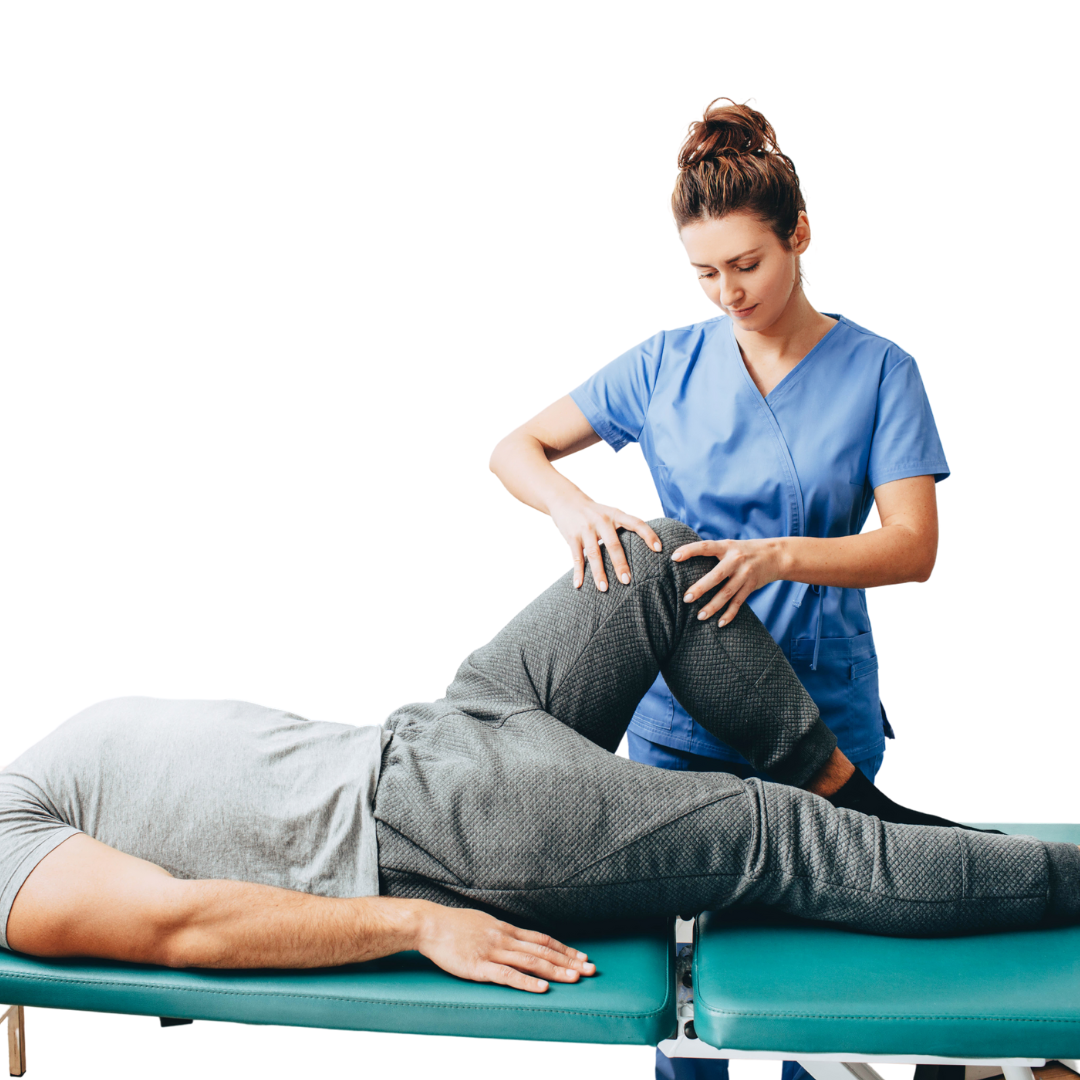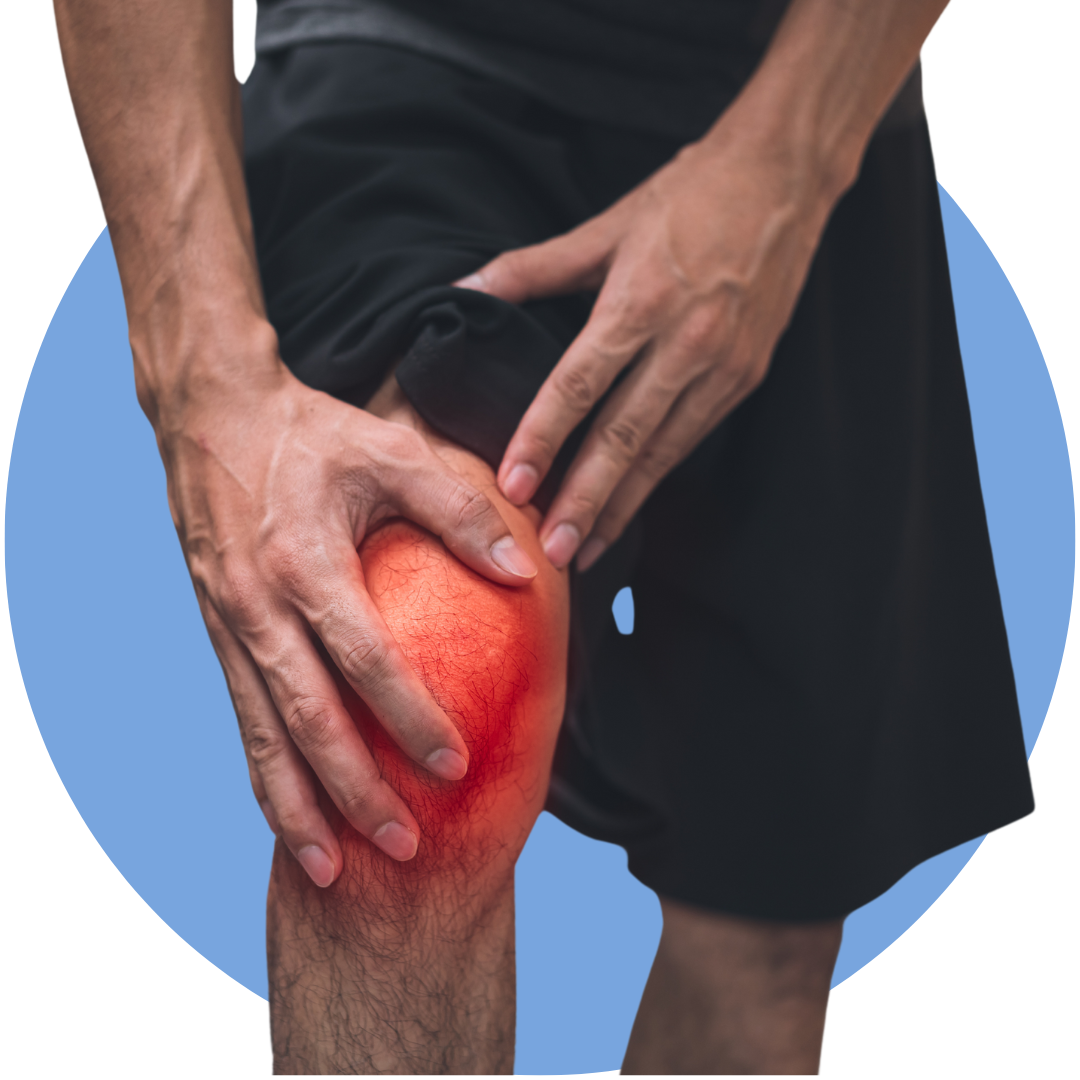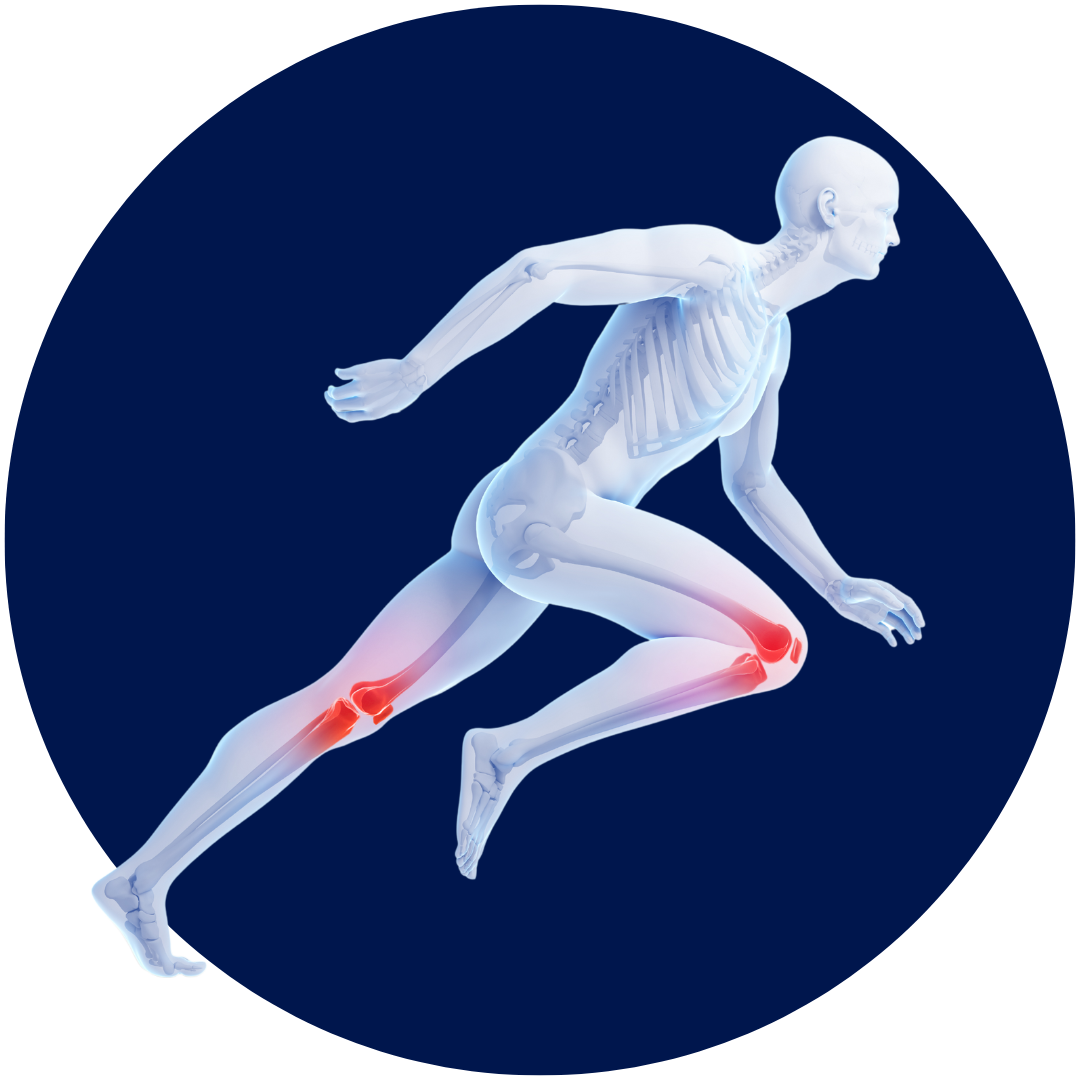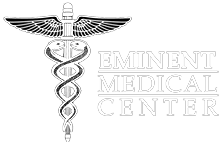Dallas and Richardson ACL Tear Treatment

At Eminent Medical Center’s Richardson ACL Surgery Center, we provide comprehensive treatment for anterior cruciate ligament (ACL) injury in Richardson and Dallas, Texas. Our approach to ACL tear treatment involves a combination of ACL surgery options and physical therapy to ensure optimal recovery. Our team of experienced orthopedic surgeons and pain management specialists are skilled in addressing anterior cruciate ligament injuries through advanced surgical treatment options such as ACL surgery. Post-surgery, our dedicated physical therapy team works closely with patients to develop personalized rehabilitation plans, focusing on restoring strength and mobility. We also address related injuries such as cartilage injury to ensure a comprehensive recovery. Whether you have a torn ACL or another type of ACL injury, our multidisciplinary team is committed to providing the highest quality care to help you return to your active lifestyle.
In Richardson, TX, the Eminent Medical Center can help provide treatment for an ACL injury. If you’ve suffered a torn ACL in Texas, give us a call at 469-910-8800, or fill out our online contact form.
Anterior Cruciate Ligament Injury
The Anterior Cruciate Ligament (ACL) is one of the key ligaments that help stabilize the knee joint. ACL injuries are among the most common knee injuries, especially in athletes who play sports that involve sudden stops and changes in direction such as football, basketball, and soccer. ACL tear treatment is essential for recovery and to prevent further damage to the knee joint.
Complete ACL Tear vs Partial Tear
ACL tears can either be a complete tear or a partial tear. A complete ACL tear occurs when the ligament is torn entirely through, leading to significant knee instability. A partial tear is less severe, with the ligament still partially attached to the bone, but it can still cause pain and instability.

Knee Anatomy
The knee is a complex joint made up of four ligaments: the Anterior Cruciate Ligament (ACL), Posterior Cruciate Ligament (PCL), Medial Collateral Ligament (MCL), and Lateral Collateral Ligament (LCL). These four ligaments work together with the cartilage, including the medial meniscus and lateral meniscus, to stabilize and support the knee during movement.
What Causes ACL Tear Injuries?
Most ACL injuries occur during activities that put stress on the knee joint, such as a sudden stop, pivot, or change in direction. Other causes of an ACL injury include a direct blow to the knee, such as a football tackle, or jumping and landing improperly. Female athletes are also at higher risk due to differences in muscle strength, physical conditioning, and neuromuscular control.
How to Prevent ACL Injuries
Preventing ACL injuries involves strengthening the muscles around the knee joint, improving neuromuscular control through targeted exercises, and adopting proper techniques when playing sports. Wearing appropriate footwear and using supportive braces may also help reduce the risk of ACL injury.

ACL Tear Symptoms
What Does an ACL Tear Feel Like?
An ACL tear is often accompanied by a popping sensation in the knee, followed by severe pain and swelling. The injured knee may feel unstable and unable to bear weight.
With most ACL tears, the knee’s compromised structure leads to a feeling of instability or the sensation that the knee may “give out.” Although these symptoms suggest a torn ACL or other ACL injury, a definitive diagnosis requires more than a visual or physical examination.
What Does a Torn ACL Look Like?
A torn ACL, while not directly visible to the naked eye, manifests through several physical signs and symptoms that can be indicative of an ACL tear injury. The most apparent sign of a torn ACL is swelling in the knee. This swelling can develop quickly, often within hours of the ACL tear injury occurring. In some torn ACL cases, the knee may also display bruising, reflecting the severity of the ACL tear injury and the extent of internal bleeding within the hinge joint.
Magnetic resonance imaging (MRI) plays a crucial role in diagnosing ACL tears. An MRI allows our Richardson sports medicine physicians to assess the extent of the knee injury accurately. Through MRI, our orthopedic surgeons can evaluate the damage to the ACL and the condition of the other three knee ligaments. This is invaluable, especially in cases where the physical signs are not conclusive or when other knee injuries may be present.

ACL Tear Test
Lachman Test
The Lachman test is a cornerstone in the physical examination for suspected ACL injuries, widely used by sports medicine physicians and orthopedic specialists. During the Lachman test, the patient lies flat, and the examiner gently flexes the knee at a 30-degree angle. The examiner then stabilizes the thigh while pulling the shin bone (tibia) forward. In a healthy knee, the ACL prevents excessive forward movement. However, with a torn ACL, there will be a significant anterior translation of the shin bone relative to the femur, indicating a compromised anterior cruciate ligament.
This test is particularly favored for its sensitivity in detecting a mild injury to the anterior cruciate ligament, making it a valuable tool in the early diagnosis of ACL injuries. It allows healthcare professionals to distinguish between a partial and complete ACL tear.
Pivot Shift Test
The Pivot Shift test is another dynamic examination used to diagnose ACL tears. This test simulates the conditions under which most ACL tears occur.
During the Pivot Shift test, the sports medicine physician or orthopedic specialist applies a valgus force to the knee while the leg is extended and then flexed. In a stable knee, the joint maintains its alignment without any significant shift. However, with an ACL injury, this maneuver induces a noticeable subluxation or “pivot” of the tibia on the femur. This abnormal motion is indicative of anterior cruciate ligament insufficiency.
For more information on Richardson sports medicine, contact Eminent Medical Center.
Treatment of Anterior Cruciate Ligament Injuries Without Surgery
Treating ACL tears without opting for ACL surgery is a viable pathway for patients with partially torn ligaments or those who engage in low-impact activities. This conservative approach to ACL treatment emphasizes the body’s natural healing process, aided by a comprehensive rehabilitation program. The focus is on minimizing knee instability, reducing the risk of further injuries, and preventing patients from developing osteoarthritis through non-surgical means.

Long-Term Effects of ACL Tear Without Surgery
When an individual decides against surgery for an ACL tear, especially with a complete tear or where significant instability exists, the long-term health of the knee can be compromised. The absence of surgical treatment in a completely torn ACL often leads to persistent knee instability. This instability can increase the likelihood of secondary injuries to the knee structures, such as the meniscus or articular cartilage, paving the way for early-onset osteoarthritis. Furthermore, the risk of other ACL injuries escalates without the structural support the ligament provides, making the knee more vulnerable during physical activities.
For those with partially torn ACLs or individuals whose lifestyles do not demand rigorous physical activity, non-surgical ACL treatment may suffice. A tailored rehabilitation program designed by a physical therapist plays a crucial role in this process. This program focuses on enhancing muscle strength around the knee, improving flexibility, and ensuring proper joint mechanics to compensate for the lack of ACL integrity. The primary goal is to restore as much function as possible while minimizing the risk factors for additional knee injuries.
How Long Does an ACL Tear Take to Heal Without Surgery?
The healing timeline for an ACL tear treated without surgery is variable, depending on the extent of the injury, the body’s healing response, and the rigor of the rehabilitation protocol. Typically, recovery spans several months, during which a PT guides the patient through a series of exercises aimed at strengthening the muscles that support the knee joint, such as the quadriceps and hamstrings, to enhance stability and mobility.
During the initial stages of treatment, immediate care is focused on reducing swelling and managing pain. Techniques such as applying ice, compression, and elevating the injured knee can be effective in reducing inflammation. Nonsteroidal anti-inflammatory drugs (NSAIDs) may also be recommended by healthcare providers to alleviate pain and decrease swelling.
As the rehabilitation progresses, the physical therapist will introduce exercises to improve range of motion, balance, and proprioception. The aim is to enable the patient to perform daily activities without discomfort and prepare them for a return to sports or more strenuous activities if desired.
It’s important to note that while non-surgical treatment can be effective for certain individuals, it may not restore the knee’s functionality to its pre-injury level. The ACL will not heal back to its original strength, leaving the knee more prone to instability and potential re-injury. Consequently, a thorough evaluation by a healthcare professional is essential to determine the most appropriate treatment plan. In some cases, if rehabilitation does not yield the desired outcomes or if the patient’s lifestyle necessitates a higher level of activity, surgery may eventually be recommended to reconstruct the torn ligament and restore knee stability.
ACL Reconstruction Surgery in Richardson, Texas
ACL reconstruction surgery stands as a cornerstone in the treatment of severe ACL tears, particularly for patients aiming to return to high levels of activity or those experiencing significant instability in their knee. This surgical procedure involves the meticulous replacement of the torn ACL with a graft. The graft can be harvested from the patient’s own body, such as the patellar tendon or hamstring tendon, or sourced from donor tissue, depending on the specific case and patient preference. The choice of graft is critical and is made after careful consideration of the patient’s anatomy, activity level, and the presence of other ligaments that may influence the knee’s stability.
The goal of ACL reconstruction surgery is not only to restore the physical integrity of the knee joint but also to reduce pain and prevent the degeneration of other knee structures. By reinstating stability to the knee, this surgery allows individuals to return to their preferred activities without the risk of further injury to the knee ligaments or cartilage.

Does an ACL Tear Require Surgery?
Deciding whether an ACL tear requires surgery involves a thorough evaluation by a doctor specializing in sports medicine or orthopedic surgery in Dallas or Richardson. The decision is influenced by several factors, including the severity of the tear, the patient’s age, activity level, and overall health. For active individuals, especially those involved in sports that demand a high degree of knee stability, surgery is often recommended to repair complete tears and restore full function. However, for patients with partial tears or those less active, non-surgical treatment options may be sufficient to manage symptoms and maintain a satisfactory quality of life.
Surgical Procedure
The ACL reconstruction surgical procedure is a sophisticated process that requires precise technique and expertise. Initially, a diagnostic arthroscopy is performed to assess the extent of the injury and the condition of other knee structures. Following this assessment, the chosen graft is prepared and then anchored into place within the knee, replicating the ACL’s natural position. This procedure is typically done arthroscopically, involving small incisions, which helps reduce recovery time and post-operative pain.
For more information on Richardson knee surgery at Eminent Medical, call 469-910-8800.
Tear Surgery Recovery Time
Recovery from ACL reconstruction surgery is a gradual process, with the timeline varying from six months to a year. The initial phase focuses on reducing swelling, managing pain, and protecting the graft as it integrates with the surrounding tissue. Subsequently, the patient engages in a comprehensive physical therapy program designed to gradually restore knee strength, mobility, and stability. This program is crucial for a successful recovery, as it ensures the knee regains its full functionality and the patient can safely resume their activities.
Torn ACL Surgery Cost
The cost of ACL reconstruction surgery can vary significantly based on several factors, including the surgical technique used, the type of graft selected, and the healthcare facility’s policies. Additional costs may arise from pre-surgical consultations, post-operative care, physical therapy, and any necessary follow-up visits. It’s important for patients to consult with their orthopedic surgeon and insurance provider early in the process to understand the financial implications of their treatment options. Insurance coverage, out-of-pocket expenses, and possible financial assistance programs should be thoroughly explored to ensure patients can make informed decisions about their care.
Patient Testimonials
Eminent Medical Center strives for the highest quality healthcare and is measured by the satisfaction of our patients overall experience.
EXCELLENTTrustindex verifies that the original source of the review is Google. I just had my second knee replacement surgery within 12 months (Dr. Berry is awesome!) and both were done at Eminent Center. The entire staff is friendly and caring from the time you walk in until the time you leave! Big kudos to the nursing staff. From surgery prep to the operating room to recovery they really have great attitudes. Thanks so much to my floor nurses. They are fantastic!!! Great experience overall!!!Posted onTrustindex verifies that the original source of the review is Google. I been here 4 times for my procedures. The best and friendliest staffs a patient can ever ask for!! Keep up the good work!! Thank you!Posted onTrustindex verifies that the original source of the review is Google. The team made sure they communicated with me very well. I knew everything I had to do every inch of detail, the facility was great, and the surgery went great. The instructions and follow up was outstanding.Posted onTrustindex verifies that the original source of the review is Google. EVERYONE was superb here- from the minute you walk in the door to the minute you leave! Attentive care for my recent surgery- made the process go smoothlyPosted onTrustindex verifies that the original source of the review is Google. The staff was amazing during my surgery! Friendly, professional, and caring through my entire experience. As an RN myself it was refreshing to have such a great experience with quality staff! Thank you to all the nurses and staff that cared for me! I highly recommend using this facility!Posted onTrustindex verifies that the original source of the review is Google. The place Is clean with a very friendyatavvyPosted onTrustindex verifies that the original source of the review is Google. The staff was great. My wait time was minimal. Very nice facility. I would recommend them to anyone needing day surgery such as I did. Thank you Eminent Medical.Posted onTrustindex verifies that the original source of the review is Google. Absolutely the best to ever do it! So, kind and the sense of urgency and willing to make you feel comfortable was amazing, good job to the team and my family and I are greatly appreciative!!!Posted onTrustindex verifies that the original source of the review is Google. My care was amazing. The food was descent and the doctors went above and beyond to make sure surgery was successful.Posted onTrustindex verifies that the original source of the review is Google. The whole experience wasn't stressful at all. The staff was amazing.. from checking in to prepping for the surgery they were friendly and helpful. Also, the building is very nice and they even have a little Bistro right there for those that are waiting. Thank you for making things so easy!
Dallas and Richardson ACL Surgery
ACL tears are a common injury that can significantly impact knee stability and function. Whether through physical therapy or ACL reconstruction surgery, treatment is crucial for recovery. At Eminent Medical Center in Richardson, TX, our team of sports medicine physicians, orthopedic surgeons, and physical therapists specialize in providing comprehensive care for ACL injuries. From diagnosis to rehabilitation, our goal is to help patients return to their active lifestyles safely and effectively. If you’re experiencing knee pain or suspect an ACL injury, seeking immediate medical attention is crucial to prevent further damage and start on the path to recovery. Give us a call at 469-910-8800, or fill out our online contact form.
